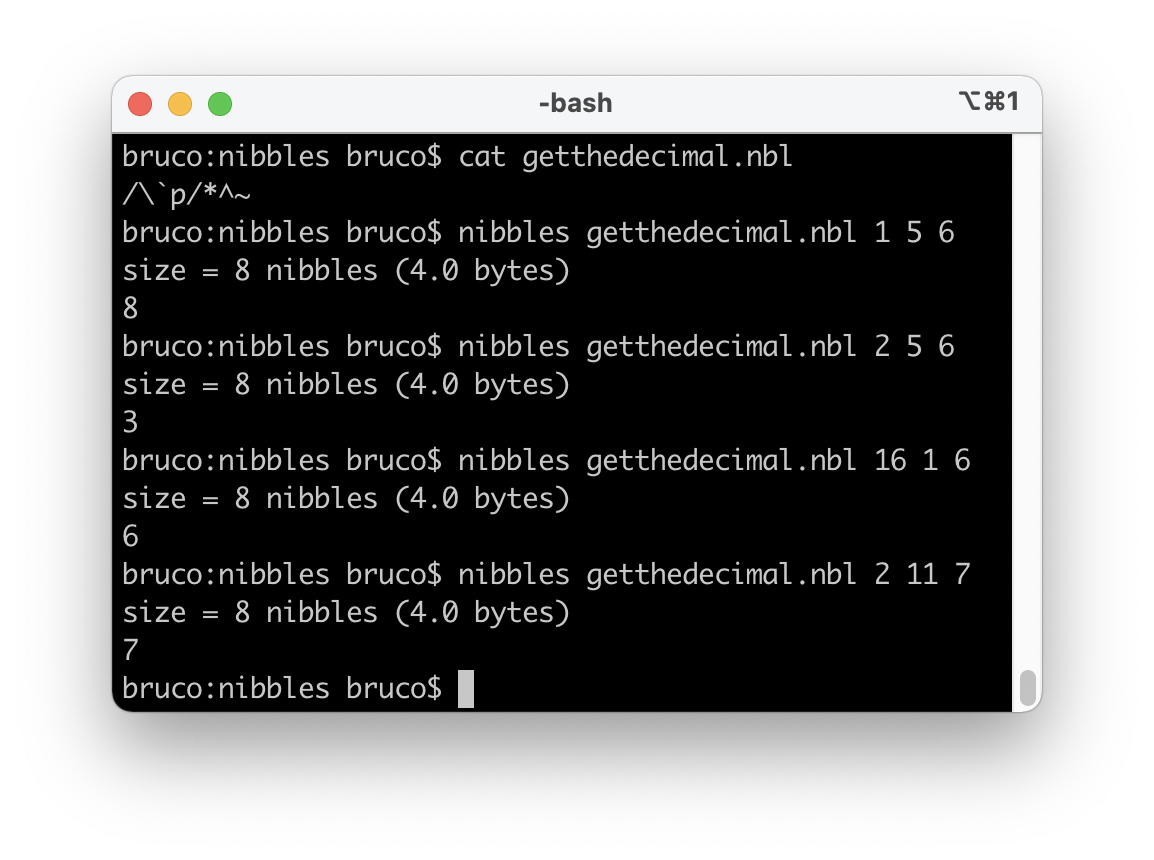Task:
Your task is, when given three inputs:
- a numerator
n - a denominator
d - another integer,
x
Create a program/function that finds the xth digit of the number after the decimal place.
Specs:
- The range of
nanddis between1and2^31 - 1, inclusive. - The range of
xis between1and10,000,000, inclusive.- You may choose to use 1-based indexing or 0-based indexing for
x. Please state in your answer which one you're using.
- You may choose to use 1-based indexing or 0-based indexing for
nmay be larger thand.n,dandxare guaranteed to be positive integers (for 1-based index version ofx, if you choose to use 0-based indexing forxthenxcan be0).- You may take inputs in any reasonable way (I.e. any way that is not a standard loophole).
Rules:
- You must return the exact
xth digit, not when rounded - so the15th digit of1/6, for example, is not7, but6. - Your program must work for all
xunder 10 million, unless your language doesn't support decimals to 10 million places.
Example I/O:
The example input uses 0-based indexing, which means x will go from 0 to 9,999,999. As well as that, the "input" is written as a string with spaces separating the numbers.
1 2 3: 0
5 6 0: 8
5 6 1: 3
1 6 15: 6 (not 7, as it's not rounded)
1 11 2: 0
1 10000 9999999: 0
11 7 1: 7

